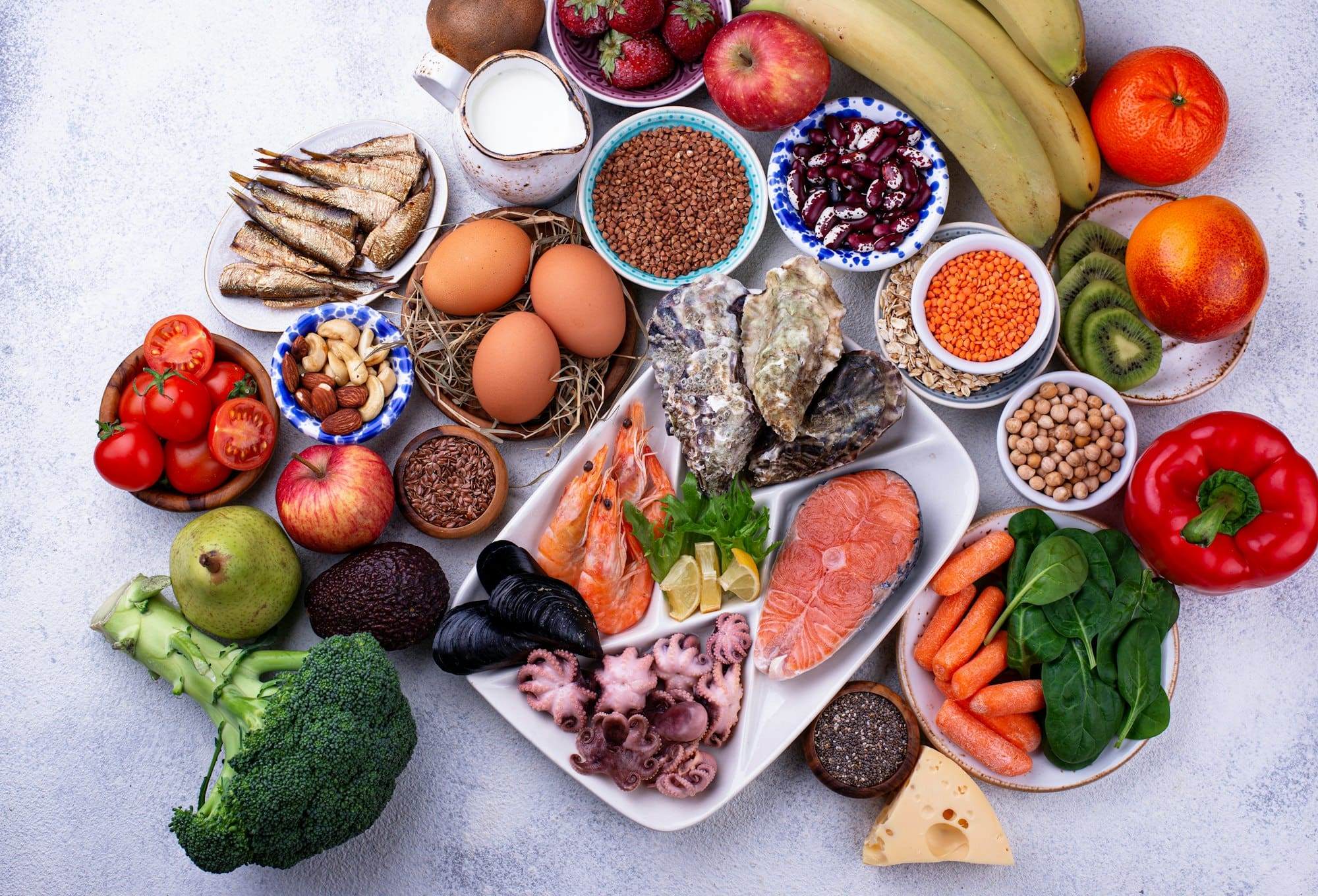


Improving your diet doesn’t have to mean giving up everything you love. In fact, it’s about making smarter choices that suit your lifestyle and tastes. By making small adjustments, you can enjoy healthier eating habits without feeling like you’re missing out.
Start by thinking about what healthy changes look like for you. It’s not about a total overhaul — it’s about incremental steps that make a difference over time.
“The journey of a thousand miles begins with one step.” — Lao Tzu
Ready to dive in?

Home cooking is not just about preparing meals; it’s about creating an enjoyable and fulfilling experience. When you cook at home, you have complete control over the ingredients, ensuring that your meals are both nutritious and delicious.
Start by exploring new recipes that excite you and incorporate a variety of fresh, wholesome ingredients.
Experimenting with different cuisines and cooking techniques can turn meal preparation into an adventure rather than a chore. Consider involving family or friends in the process, making it a social activity that everyone can look forward to.
This not only makes the cooking experience more enjoyable but also provides an opportunity to share and appreciate the food together.
One of the best ways to discover the joy of home cooking is to grow your own herbs or vegetables. Gardening can be a therapeutic activity, and using your own produce in meals adds a personal touch. Plus, it’s immensely satisfying to know that what you’re eating came from your own backyard.
If you’re new to cooking, start with simple recipes and gradually challenge yourself with more complex dishes. There’s plenty of online resources, including video tutorials and step-by-step guides, to help you along the way. Remember, it’s perfectly fine to make mistakes—the key is to enjoy the process and learn from it.
Finally, practice gratitude and mindfulness while cooking and eating. Take a moment to appreciate the effort that went into growing, harvesting, and transporting each ingredient. This mindful approach can deepen your relationship with food, making each meal a time for reflection and thankfulness.
By embracing home cooking, you’re more likely to prepare balanced meals that cater to your taste and dietary needs, all while creating a positive and nourishing environment for yourself and your loved ones.

Snacking doesn’t have to be a guilty pleasure. By choosing nutrient-dense foods, you can enjoy all the benefits of snacking without the downsides.
Whether you’re at work, on the go, or relaxing at home, there’s a healthy option for every situation. Let’s explore some smart ways to snack without feeling deprived.

Water is essential, but it doesn’t have to be boring. One of the easiest ways to stay hydrated without feeling like you’re missing out is by getting creative with your drinks.
Try infusing your water with fresh fruits, vegetables, and herbs. A few slices of cucumber and mint can make a refreshing drink, while strawberries and basil create a fruity twist.
If you’re craving something a bit sweeter, think about adding a splash of 100% fruit juice to sparkling water. This can give you the bubbly experience you love without the added sugars and calories of soda.
Herbal teas, both hot and iced, offer another excellent option for staying hydrated with flavor. Consider experimenting with ginger tea, hibiscus tea, or even a soothing chamomile blend.
For those who enjoy smoothies, these can be a great way to increase your fluid intake while also packing in nutrients. Aim to blend a good mix of fruits and vegetables with a liquid base like water, coconut water, or almond milk.
Adding a handful of spinach or kale boosts the vitamins and minerals without detracting from the taste.
Don’t forget about broths, especially if you’re looking for something warm. A well-made vegetable or bone broth can not only keep you hydrated but also provide important electrolytes. These are perfect for colder days when you need comfort as well as hydration.
Lastly, pay attention to your body’s cues. Often, what we perceive as hunger is actually thirst, so sipping water regularly throughout the day can help manage both hydration and cravings. Make a habit of carrying a reusable water bottle with you. It’s a small change that can yield significant benefits over time.
One of the most effective ways to manage portion sizes without obsessing over calories is to listen to your body’s internal cues. Recognize when you’re truly hungry and when you’re comfortably full.
This might sound simple, but it can take practice to tune into these signals, especially if you’re used to eating on autopilot. Start by eating slowly and giving yourself time to savor your food.
Not only does this enhance your eating experience, but it also provides your brain with ample time to send fullness signals.
Additionally, you can incorporate mindful eating practices into your daily routine. Mindful eating involves paying close attention to the textures, flavors, and aromas of your food, as well as your body’s response to it.
When you eat more mindfully, you’re less likely to overeat and more likely to make healthy choices naturally.
Another useful strategy is to schedule smaller meals about three hours apart. This helps to keep your energy levels stable and prevents excessive hunger that can lead to overeating.
By keeping your portions in check, you can enjoy a variety of foods without feeling deprived. Remember, it’s not about restricting yourself but about finding a balanced and sustainable approach to eating.
A non-judgmental approach to food, where you allow yourself occasional indulgences, can also help curb cravings and keep you on track.
Finally, consider using smaller plates and serving sizes to trick your brain into feeling satisfied with less. Research shows that people tend to eat less when they use smaller dishes. This simple yet effective tip can assist you in controlling portions without the need for meticulous calorie counting.

Breakfast sets the tone for the day. Kick it off with a meal rich in nutrients and flavors that keep you satisfied and energized. Think beyond the usual cereal and explore various options that entice your taste buds while nourishing your body.
Whole grains: Opt for oatmeal, quinoa, or whole-grain toast. These complex carbs help you stay fuller longer and offer a steady release of energy.
Protein punch: Eggs, Greek yogurt, and cottage cheese are fantastic sources of protein. Mix things up with a smoothie loaded with your favorite fruits, a splash of milk, and a spoonful of peanut butter.
Healthy fats: Adding avocado, nuts, or seeds can elevate your breakfast’s nutrient profile. Sprinkle chia seeds on your yogurt or spread almond butter on whole-grain toast to incorporate these good fats.
Don’t forget to include vegetables! Sautéed spinach, tomatoes, or a handful of mixed greens can easily be added to an omelet or smoothie. These veggies not only add essential vitamins but also vibrant color and fresh flavors.
When you make breakfast your power meal, you’re investing in a healthier, more energised you. Remember, breakfast doesn’t have to be boring or conventional; it’s a wonderful opportunity to start your day with a burst of nutrition and joy.

Eating healthier doesn’t mean you have to give up all your favorite foods or starve yourself. It’s about making smarter choices that nourish your body and fuel your mind, all while keeping you satisfied.
Here’s how you can transform your eating habits for the better, without feeling like you’re missing out on anything.

Absolutely! Here are a few strategies to consider:
You can start by embracing the concept of mindful eating. This involves paying closer attention to your food and savoring each bite.
By doing this, you’ll not only appreciate the flavors more but also become more aware of your hunger and fullness cues, which can prevent overeating.
Additionally, incorporating more nutrient-dense foods, like colorful vegetables and whole grains, into your meals can make them both tasty and healthful.
Don’t forget about occasional indulgences—allowing yourself a treat now and then can help you maintain a balanced approach without feeling deprived.
Improving your diet doesn’t have to mean sacrificing the foods you love or feeling deprived. Instead, it’s all about making thoughtful choices and fostering a positive relationship with food.
From the joy of home cooking and the benefits of nutritious snacks to the importance of staying hydrated and practicing mindful eating, every small change can significantly impact your overall well-being.
Remember, it’s not just about what you eat but how you approach eating. Develop an attitude of gratitude towards your food, take time to appreciate every bite, and listen to your body’s cues
Surround yourself with supportive individuals who can encourage your journey and hold you accountable.
By embracing these strategies, you can create a sustainable and enjoyable eating pattern that enhances your health without the sense of deprivation.
Start by incorporating one or two tips, and gradually build habits that work best for you. Your journey towards a healthier diet and a happier you begins now.









